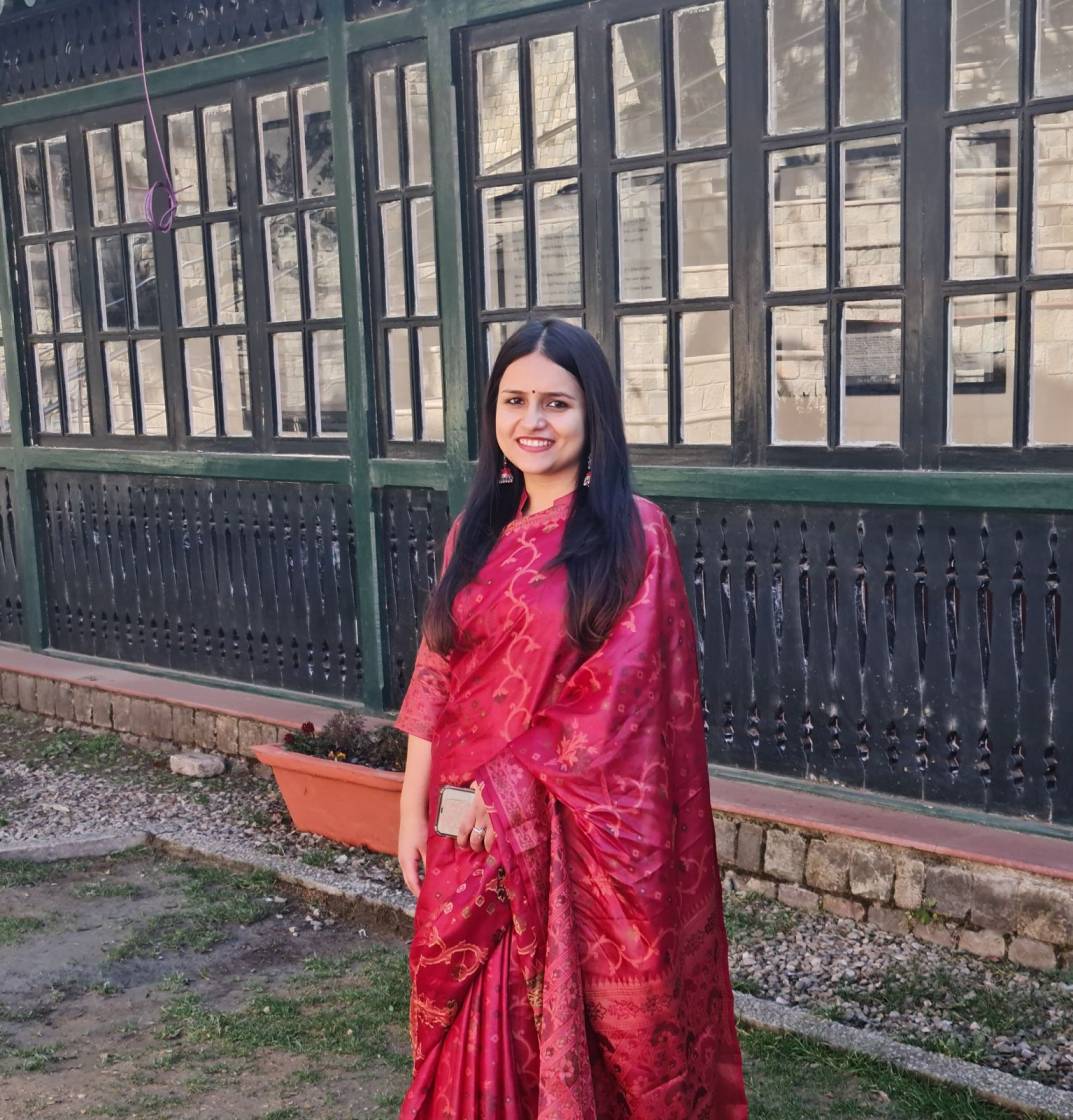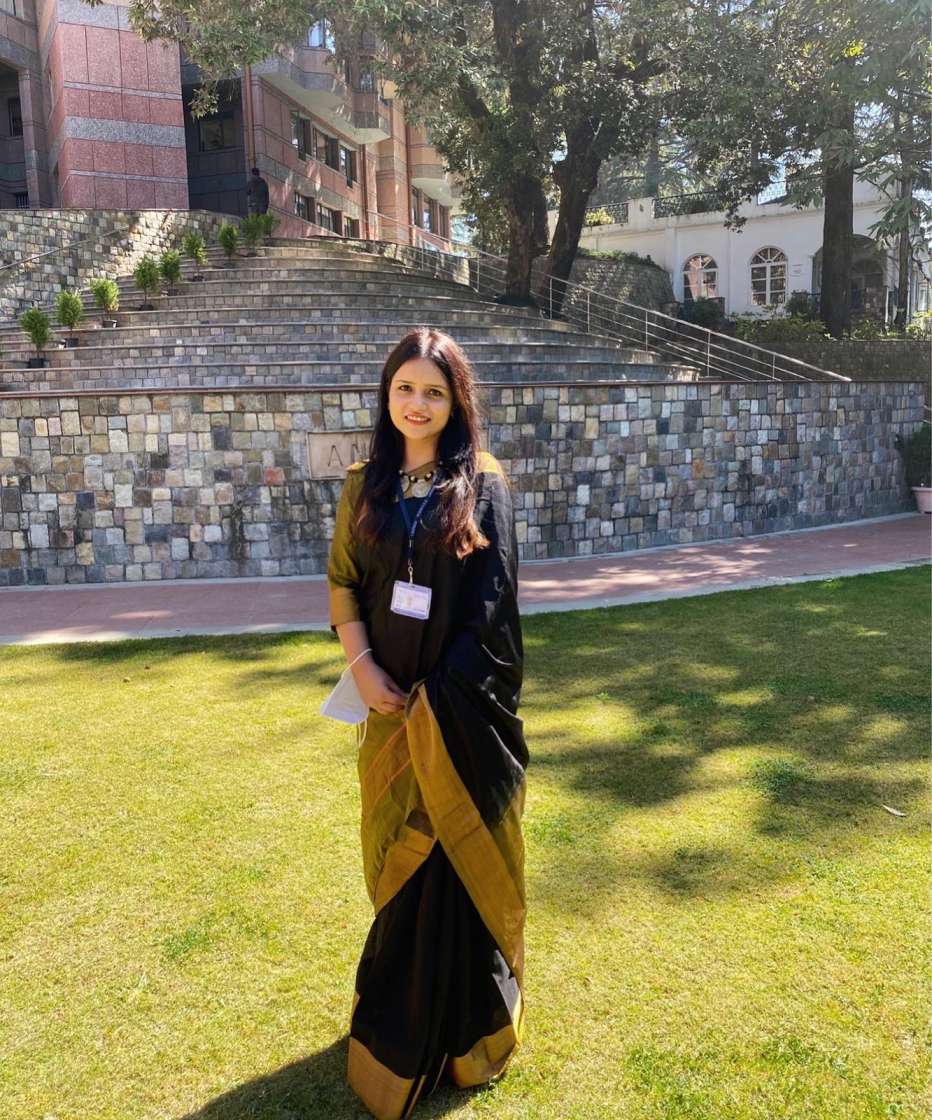Self-study for the Union Public Service Commission’s (UPSC) Civil Service Examination (CSE) most certainly seems like a daunting task to aspirants. While some aspirants choose to enrol at various institutions and academies to study, a handful may opt for self-study. Sarjana Yadav, a 2019-batch officer who secured an All India Rank (AIR) of 126, is one such aspirant who chose to take the path less taken.
Sarjana’s childhood was spent in Delhi/NCR where she attended school and college. “I am a BTech graduate from the Delhi College of Engineering. Post-graduation, I worked with the Telecom Regulatory Authority of India (TRAI) as a research officer. During my stint at TRAI, I decided to attempt the CSE, and in 2018 I gave my first attempt,” she tells The Better India.
“I come from a family where a majority of people are involved in government service and jobs. My father also is a part of the Indian Engineering Service (IES) and my maternal grandfather was an Additional District Magistrate in Bihar. So, my foundation was intact, and I just followed that path,” she says. Given how fast-paced life in a metro is, Sarjana says that it just took her some time to finalise on appearing for the examination.
She continues, “Even when I was working at TRAI we would report to civil servants and that further strengthened my desire to appear for the examination. I got to see how they were often part of the decision-making process and involved in bringing about change. I was sure of wanting to be on that side.”
In 2019, Sarjana says that she gave her second attempt after quitting her job at TRAI.

“In fact, I didn’t even tell my parents I had quit my job at TRAI. The few people who knew would often tell me I was being silly in giving up a good stable government job. However, I knew what I needed to do, so I persisted.”
After Sarjana quit her job, she started preparing for the 2019 UPSC CSE in June 2018. She says, “I continued to stay with my parents in Noida and started my preparation from there. The one thing I was clear of was to not enrol in any coaching class.” This stemmed from her own experience of attending coaching classes when she was preparing for the IIT entrance exam. She explains, “I missed out on getting into IIT by one mark and that was perhaps the first heartbreak that I went through. I felt that in a coaching setup, everyone starts to think in one direction. There is a uniformity in thought and I did not want that.”
She shares the self-study techniques that worked for her:
1. Be disciplined:
“One of the most important things is to make a schedule and be very disciplined in following it. I would ensure that by the end of the day, I had covered whatever I set out to do that day. I would not give myself too much leeway when it came to the work schedule I had prepared,” she says.
2. Factor in breaks:
“This is not a short-term project and one should not approach it like one either. Imagine this to be a marathon and ensure that you pace yourself well. This is a 1.5-year-long journey and therefore whatever plan you make must be sustainable. As and when you finish portions in your list, give yourself a well-deserved break. This will also help you come back stronger,” she adds.
3. Be 100% sure of the syllabus:
“The first thing I did was to have a printout of the syllabus handy. With that, I found the prescribed book list to get started. Before an aspirant starts their preparation journey, one should spend some time going through the syllabus to get an idea of what can be asked in the examination. Comparing the syllabus and investing in books accordingly will save you time and money going forward,” says Sarjana.
She reiterates the importance of using minimal study resources and utilising the time to go through the same material multiple times. “I never studied from many sources. I read the same material over and over again and ensured that I was 100 per cent sure of everything in that book/resource material.”
4. UPSC CSE is not akin to doing a PhD:

“While studying and appearing for the examination, always remember that UPSC CSE is testing your knowledge on the subject and also trying to ascertain how well you are able to apply what you have studied. Do not spend more time than needed on any subject. Always remember that you are studying to qualify in the CSE and not write a thesis on any subject,” she says. Keep in mind that you have just a few months to prepare for the exam, therefore make full use of the time at hand.
5. Focus on reading a newspaper:
Sarjana would read The Hindu and says that while initially, it would take a while to get through the newspaper, with regular reading the pace increases. “Early on in my preparatory journey, I would take close to 1.5 hours to read through the paper. Eventually, my reading speed and grasping power increased and towards the end of the preparation period, I would spend no more than 30 minutes reading.”
Sarjana also shares that one of the most difficult things to do was newspaper reading. “Once I would find an article that was of interest, I would make bullet points in my diary. This helped during the later stages of the preparation.” She also says that relying on newspapers alone for current affairs is not enough. Every evening, she would browse through the current affairs section under ‘Insights IAS’ as well.
6. Digital note making is a must:
Given that there are constant updates to the general news, it is better to make notes digitally. “In case you have made notes on a particular subject, if you wish to add more details to it, having the data on your mobile phone or computer system makes it easier to edit the existing notes or even add more details to it,” says Sarjana. She adds that one must be detached from the notes made. “Be smart with your note-making and do not unnecessarily cram too much information into it. Keep your emotions at bay while making your notes. Do not immerse yourself so much that you forget what is actually important,” she says.
7. Be greedy to answer questions:
Besides all the reading that Sarjana did throughout the day, she says that there were five current affair questions that Insights IAS would publish every evening, which she would meticulously solve. “Those five questions helped me a great deal in making connections between everything I was reading both in the newspaper and while preparing for the current affairs portion,” she says. The five questions usually were culled out from the newspaper articles and helped her understand how to read questions much better.
8. Recollecting and making connects:

“A majority of the aspirants will study from the same resource material and text-books, therefore, it is important for you to bring something extra while writing your answers. The key to this examination is revision and reinforcement. The more you revise, the better you will be while attempting the answer. The answer to each question should flash in your mind because of your repeated revisions,” she says.
9. Pair subjects after giving it some thought:
To be able to make use of the time you have in the best possible manner, Sarjana urges aspirants to pick two subjects at a time while studying. Sharing her strategy, she says, “I chose to study one heavy and one light subject together. For example, polity is a heavy subject while the environment is considered to be light. I had made a schedule to complete these two subjects within a time frame after which I spent close to a week going through and solving mock papers and previous year question papers as well.” Pairing two subjects in this manner helped her revise well.
10. Bring in a holistic approach to your essay:
“UPSC is looking for candidates who have a very holistic approach to any subject. Therefore, before you start writing your essay, jot down the points you wish to cover. Ensure that you are mentioning all aspects of the given topic. The flow or connectors between one paragraph and the other must be seamless and the examiner must not find any disconnect,” she says. Personally, Sarjana went through the essay of the previous year’s toppers to get a fair sense of how to structure the essay.
In conclusion, she says, “There is no universal magic potion to clear this examination. We have all made our share of mistakes along the way. Be smart in preparing and ensure that you are consistent in your efforts. This examination is not about perfection but tests your dedication and honesty.”
(Edited by Yoshita Rao)
No comments:
Post a Comment